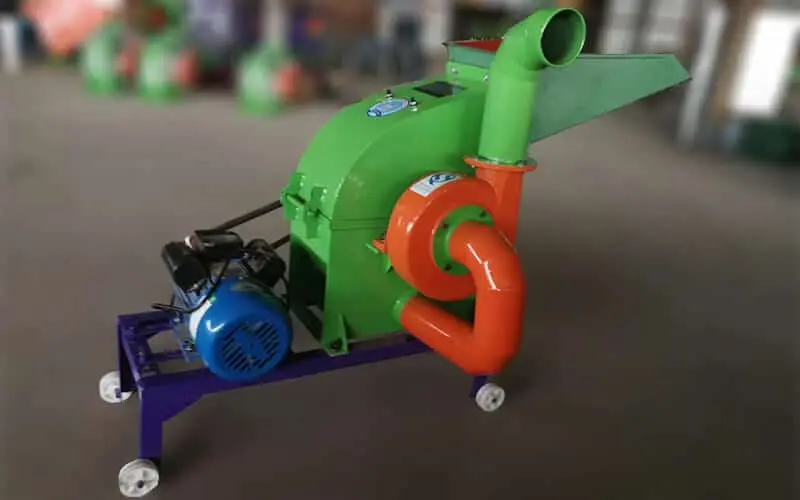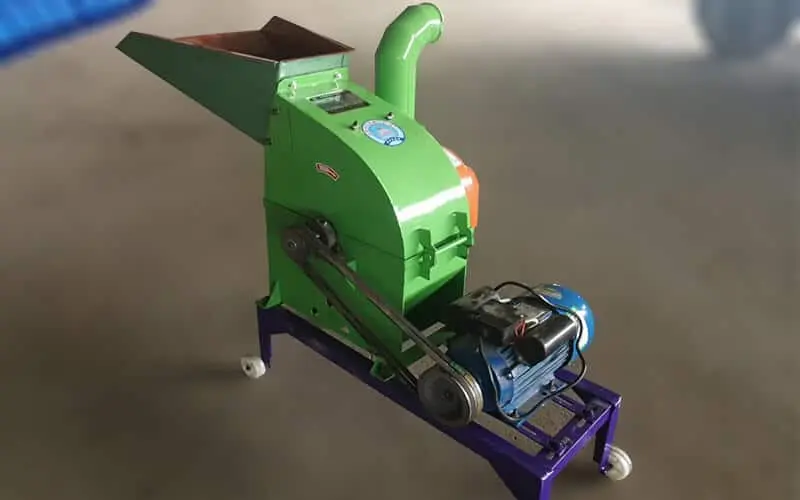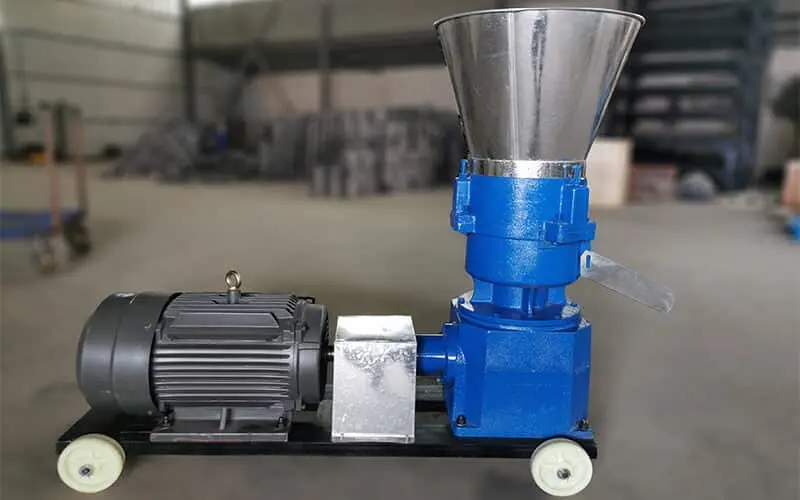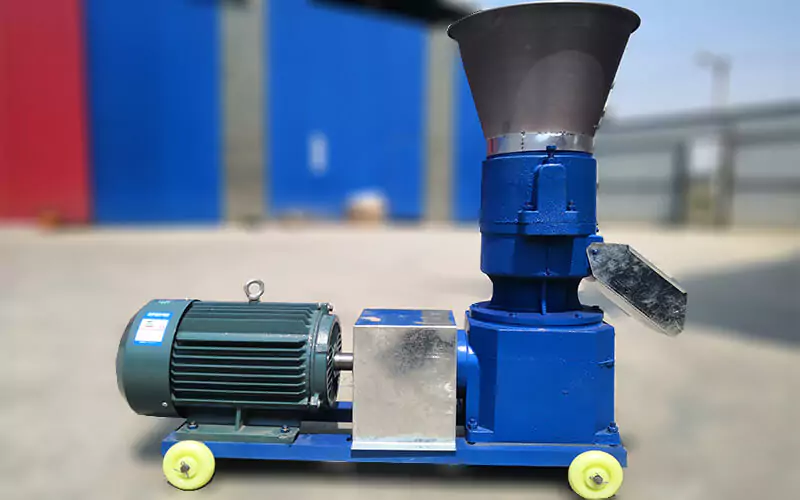introduction of feed pellet machine in botswana
For farmers all across Botswana, the high cost of feed is a constant challenge. It’s tough to run a profitable farm when your single biggest expense is unpredictable and often out of your control. Relying on imported commercial feed can feel like a gamble.
An on-farm feed pellet machine is the practical solution to this problem. It is a powerful tool that helps Batswana farmers achieve true self-sufficiency. It gives you the power to use your own local crops and resources. You can create affordable, high-quality feed for your livestock, and take back control of your farm’s bottom line.


Advantages of Feed Pellet Machine in Botswana
Investing in your own feed pellet machine is a strategic move that delivers clear, practical advantages for your farm in Botswana. It’s about building a more resilient and profitable business from the ground up.
Gain Independence from Imported Feed Costs
The number one benefit is control over your finances. By making your own feed, you drastically reduce your need for expensive commercial feeds, which are often imported and carry high transport costs. This simple change gives your farm much-needed financial stability and protects you from unpredictable price hikes.
Unlock the Power of Local Botswana Crops
This is where the real power lies. You can create excellent, nutritious feed using the crops and resources that are readily available in Botswana. You can build your formulas around local and often cheaper ingredients like maize (maize), sorghum (mabele), sunflower cake, and cowpea meal. This lowers your costs and supports the local agricultural economy.
Achieve Better Health and Growth for Your Livestock
Pelleting your feed ensures that every single bite is a complete, balanced meal. This consistent nutrition leads to better results for all of Botswana’s vital livestock, including cattle (dikgomo), goats (dipudi), sheep, and poultry (dikoko). Healthier, better-fed animals simply grow faster and are more productive.
From Self-Sufficiency to a New Business
Once your machine is meeting your own farm’s needs, it creates a new opportunity. You can start producing high-quality feed to sell to other local farmers in your community. This not only creates a new source of income for you but also provides your neighbors with a valuable, locally-made product.


What Feeds Can You Make? For Botswana’s Key Livestock
Animal Feed Machines for Cattles & Goats
These steady animal feed pellet machines turn grass and grains into easy-to-eat pellets. At Thabo’s ranch near Ghanzi, his machine makes 500kg/hour, which is enough to feed 200 cattles daily. All models of our feed pellet machine meet EU safety rules and come with two years warranties.
Chicken Feed Specialists
Poultry feed pellet machines can make 2mm pellet feed for chicks and 4mm pellets for adult chickens. It only need to adjust the pellet size through changing the die hole size. This ensures every bite has the right nutrients.
Fish Feed Innovations
With Botswana’s fish farming are more booming, floating fish feed pellet machine gets more and more popular in Botswana. These machines can make pellets that stay floating for 12+ hours.
The nutrients slowly release to make sure fishes can get rich nutrients. If you have a special fish feed formulation that includes wheat flour to ensure buoyancy, you can meet international standards for aquaculture feed.
Poultry Feed
For the large and growing broiler and layer industry, which is a key part of the national food strategy.
Goat & Sheep Feed
To provide balanced nutrition for smallstock. These animals are crucial for many households and commercial farms.
Other Livestock Feed
For pigs and potentially for game farms.
Choosing the Power Type of Feed Pellet Machine
Choosing the right machine for Botswana means matching it to the local reality. Nowhere is this more important than with the power supply. A machine you can’t reliably power is a useless investment.
The Power of Independence: Diesel and PTO Machines
For the vast majority of farms in Botswana, a machine with its own power source is the most practical and reliable choice. Given the long distances and potential power challenges in rural areas, a diesel engine or a tractor-powered (PTO) machine gives you true freedom. It allows you to produce feed on your own schedule, anywhere on your property, without ever depending on the public grid.
When Electric Power Makes Sense
A simple electric flat die mill is a good choice if your farm is in an area with a more stable and reliable power supply. They are often quieter and simpler to operate. This is a viable option for farmers who are confident in their connection to the grid or who have a large, dependable generator for their operations.
The Industrial Choice: Large Ring Die Mills
It’s also important to know that the very large ring die mills are a different class of equipment. These are industrial machines built for huge, commercial feedlots or dedicated feed manufacturing businesses. They are a much larger investment and are designed for high-volume production for the wider agricultural market.
Asking the Right Questions Before You Buy in Botswana
Before you make a final decision, take a moment to think like an investor. A good machine is a long-term partner for your farm. Here are the most important questions you need to answer for yourself.
What is Your Real Power Situation?
This is the number one question for any farmer in Botswana. Be honest with yourself. Is your power connection reliable enough to run an electric motor every day without interruptions? Or is a diesel engine or tractor-powered (PTO) machine the only practical way to run your business? Your power reality must guide your choice.
What Animals Are You Feeding, and How Many?
Next, get specific about your needs. The type of animals you are feeding will determine the pellet sizes you need to make. The size of your operation will determine the capacity, measured in kilograms per hour, that your machine must be able to produce. Match the machine to the real-world needs of your farm.
Prioritize a Machine That is Strong, Simple, and Repairable
Getting specialized spare parts to a remote farm can be a slow and difficult process. That’s why a machine’s design is so important. Look for a robust machine with a simple, mechanical design. A machine that a good local mechanic can understand and repair is often a much better long-term investment than a complicated one.
The Most Important Question of All: “How Do I Get Spare Parts?”
Before you pay anyone, you must ask the supplier a direct question: “When I need a new die or roller, how will I get it?” Do they keep them in stock here in Botswana, or do they have to be ordered from overseas? The answer to this question tells you everything you need to know about their long-term commitment to you as a customer.

